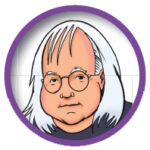Okay, I don’t quite get it. It’s April. Up here in San Francisco, it’s pouring rain. Yet the festival season starts in just a couple weeks, with the Coachella Valley Music and Arts Festival kicking off for two fun (and work) packed weekends from April 11 to 13 and 18 to 20. It might be springtime, but I guess the chances of warm weather are better in the desert/Coachella Valley town of Indio, Calif. than up here in the fog belt.
As a modern harbinger of spring, the arrival of the festival season is also good news for the sound reinforcement and live music industries. For while big stadium shows have been on the endangered species list for decades, the festival biz is up, up, up. Festival promoters everywhere have been very keen to notice that fact. Let’s face it. A multi-stage festival can be a lot more fun to the fans than the sterile environment of folding Fiberglas seats of a stadium presentation. While mega stadium shows are occasional events, festivals are something that typical showgoers plan for months, making travel arrangements, often arranging groups of friends to attend en masse, and the thing becomes much more than just a show, and morphs into an experience.
Beyond these mega events, the festival phenomenon has filtered down to the local level. Here’s where communities have increasingly been looking for their share of the pie, along with the attendant benefits to local commerce that festivals can bring to the community. And not surprisingly, such regional events are becoming more popular. Although it may have encountered some birthing pains (and suffered from a few “accounting malfunctions”) along the way, last year’s Bottlerock Festival in Napa, Calif., was a ginormous success from the viewpoint of production, promotion and fan reaction.
Bottlerock also represented an example where a well thought-out concept — a festival focused on fine wines, upscale foods and great music — offered a winning combination to attract well-heeled partygoers in a fairly affluent area. However this was also a case where the organizers worked with sound company Delicate Productions well in advance and could benefit from Delicate’s years of experience and inside knowledge of event production.
There’s no reason that the same approach couldn’t be applied — with an appropriate local slant — to creating new festival-style events anywhere. Clearly the Coachella Valley isn’t quite anyone’s picture of a tourist Mecca, but the festival is a well-conceived and well-run event that not only brings in profits for the promoters but also an appreciated boost for the local economy.
In terms of creating new festival experiences, savvy regional sound companies are ideally poised to work with groups and organizations in the area to develop events of their own. And when such ideas and concepts come from within (rather than outsiders), roadblocks such as permitting, zoning and various levels of agency approvals are often eased or set aside when the entire community stands to benefit from the endeavor.
It all has to start somewhere, and as the regional sound provider, perhaps that impetus comes from you. Of course, it doesn’t have to kick off as a star-struck mega production — it could begin as simply as a street fair, or even opera in the park or bringing bands for 10th-inning performances after minor league baseball games.
There are lots of other ideas that make economic sense. For example, hosting two different festivals on consecutive weekends, such as the successful back-to-back pairings of Osheaga and Heavy Montreal — appealing to different fan demographics, but re-using the same staging, fencing, sound system and support infrastructure. Smart thinking and everyone benefits. The next step is up to you.
Catch George’s editorial commentary at www.fohonline.com/foh-tv.
